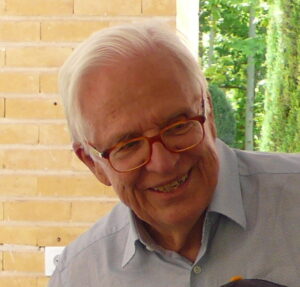Regional Group Webinar – Portuguese Neuropsychoanalysis Group
Psychological Stress, Psychodynamics and Prolactin
Presenter:
Prof. Luís Gonçalves Sobrinho

Discussant:
Dr. Filipe Arantes-Gonçalves
Registration is now closed
Please click here to view the video of this event.
All are welcome; no charge for attending.
Start time in selected time zones
Abstract
I am an endocrinologist, not a psychoanalyst, even though I have some experience in the field. The stories I will be telling you center around a hormone – prolactin – and its relationship to some aspects of the human mind. Some pituitary tumors overproduce prolactin and our interest in the field started out with observations of these patients. We found that they presented with some unexpected characteristics: 1 – Most of them had been brought up in households characterized by an absent or abusive, often alcoholic father; 2 – The clinical onset of the disease was often preceded by a significant life-event; 3 – Besides the expected symptoms of amenorrhea and galactorrhea, these patients often presented with unexplained symptoms, weight gain, among others. I call our attention to the fact that one of the main functions of prolactin is to pump fat from the adipose tissue into the breast to produce milk, not to accumulate fat. We found that unexplained weight gain in otherwise healthy women also often follows a significant life event and is associated with galactorrhea and with higher levels of prolactin than controls with stable weight. We speculate that rapid, unexplained weight gain, at least in some women, may be an oligosymptomatic, non-psychotic, form of pseudopregnancy. Finally, we present studies on the acute hormonal responses to emotions induced under hypnosis. We found that a state of induced breast feeding did not induce a prolactin response. However, prolactin surges were obtained after intense, stressful emotions. Cortisol surges were the most common responses to psychological stress, as is generally accepted. However, prolactin responses were occasionally observed and were not associated with cortisol responses. Prolactin surges associated with psychological stress are an alternative, not a complementary response to the specific stressor. Therefore, from the point of view of hormonal responses, “psychological stress” is not a uniform, consistently cortisol related entity. These matters will be discussed.
Bio
Professor Luis Gonçalves Sobrinho is currently retired from the University and is exclusively in private practice as Endocrinologist. Until 2010 he was the Head of the Department of Endocrinology, Portuguese Cancer Institute, Lisbon, and Professor of Endocrinology at the Faculty of Medical Sciences, Lisbon. He graduated from the Faculty of Medicine Lisbon in 1963 where he became specialist in Internal Medicine. He worked for two years at the Yale University Medical School, first as a Fellow and then as Assistant Professor of Medicine and Gynecology. Upon his return to Portugal he joined the Department of Endocrinology of the Portuguese Cancer Institute where he became Head of Department in 1990. He has published 90 papers in refereed journals, some of which have beem selected for the Year Books of Medicine, Endocrinology, Cancer and Obstetrics & Gynecology. He has also written 19 chapters in books. His papers have been quoted on average 4.432 times as of October 2020. His main areas of research are prolactin, prolactinomas and their relations to psychological stress.